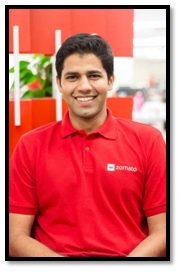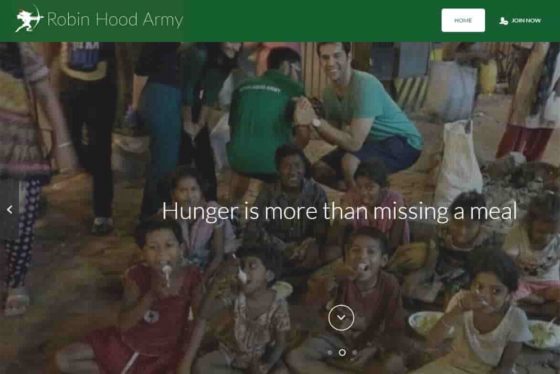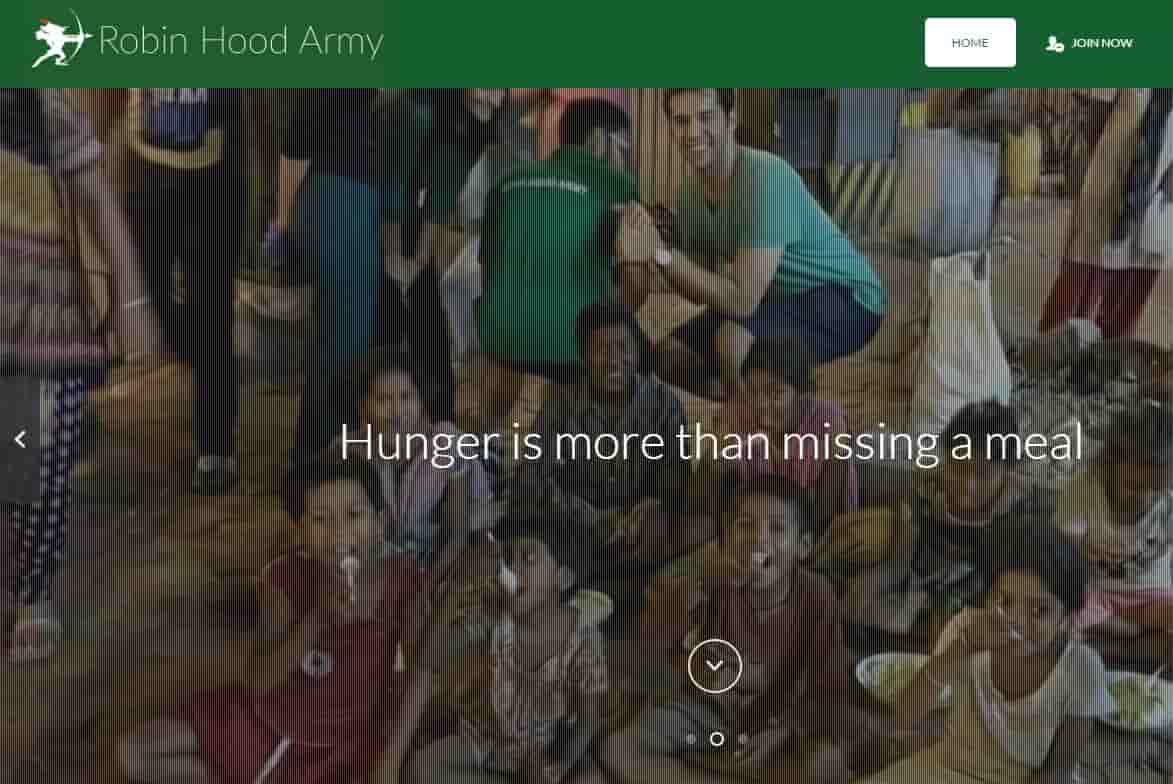
Neel Ghose is the Vice President of International Operations at Zomato. He worked with the New York based hedge fund (D.E. Shaw), after which he realized that he found excel sheets and financial analysis exceptionally boring. In the world of food and startups, he joined a small passionate team that believed in building a world-class product. In his free time, along with his friend Anand, Neel has set up the Robin Hood Army – a volunteer based organisation which collects excess food from restaurants and distributes it to the less fortunate. In two years, the RHA is now in 10 countries and has served over a million people till date. As a Finance student Neel has studied at the Shriram College of Commerce and the London School of Economics.
He spoke exclusively to Team Estrade during his talk at TEDxGateway. Following are the excerpts of our conversation with Neel.
- Tell us about Robin Hood Army.
It’s a very simple concept. Basically, it’s an organization where the idea is to collect excess food from the restaurants and give it to the local, less fortunate people of the locality. The way it works is in a manner, lets say in a place like Juhu, volunteers will be the residents of Juhu. Food from the offices and restaurants of Juhu and they give it to lets say, homeless clusters and HIV patients in and around Juhu. So, the idea is that in your free time, how you give back to the local community. The only one, key rule that we have is that we don’t collect anything monetary, we only want people’s time.
- What is the Geographical range of your initiatives?
Right now, we are in 12 countries and in a total of 37 cities. A lot of these cities have their own mini chapters, like Mumbai itself has 15 or 16 sub chapters, which look after each locality. So, currently we have around 8000 chapters spread across these 12 countries.
- What is the size of your market, in terms of the number of people you want to help?
As of now, we have served around 1.5 million people, that is nothing compared to the existing problem. Around the world, there are 795 million people who do not have food available to them easily. One fourth of these people are in India, or 194 million people in India who are hungry. On the other side, 40% of the food that is produced in our country , is wasted and thrown away. That can essentially be the solution to the hunger problem. So, this is the picture that I look from the markets point of view.
- What is your strategy for reducing the costs and making your stake holders aware of your work?
So, two things, one is, we have a very de-centralized model. Every Chapter, go about doing their Robin Hood Army work, in their own way. It’s not like one centralized structure, where Delhi is head office and the work flows out of that. So, one thing that has happened from this is that people have a lot of ownership. And, they are very passionate about the cause, its not like I am working for some structured NGO, instead, they think, “this is my baby and I can do what with it to make a project successful.”
I think that we are extending this platform to as many people as possible. Now, how we are doing this is, that, since we have a take no funds policy, our major play for the past few years has been through social media. So, we try to share the movements which we have on facebook, on twitter, on instagram, where interested people see our work. That’s the way we grow. So, once for example would be like, our Pakistan chapter had a work featured by Al Jazeera’s online media, with more than 7 million views. Seeing this, many people wrote to us asking, how they can start this in their country. That’s how we slowly moved from 5 countries to 12 countries. So, the idea is to create as much impact as possible and use social media to bring in as many people as possible under this umbrella.
“Our initiatives focused on food are charity and the ones focused on education are development. To see real progress, both of these have to go hand in hand.”

- Is the eco system in India, ripe for the success of your work?
I definitely think so, because for example, I take three stake holders of Robinhood army, first are the volunteers, second are the restaurants and third are the people whom we are serving. Now, from the perspective of the restaurants, they are serious about helping and they actually want to make a difference through this common platform of Robin Hood army. From volunteer point of view, the most interested in this as they want t make a difference and make an impact. There are still gaps where the co-ordination between the three stake holders can be done in a better way. So, I strongly feel that India definitely has the potential in giving back, it just has to be channelized in a structured manner.
“it is unfair to expect the government to pick up every systemic problem we have in the country.”
- In which geographical area, do you have the maximum outreach?
Our largest chapters are Delhi, Pune, Mumbai and Hyderabad. We have more than 100 Robins in each of these cities. We serve a good 3000 people every night.
- What are your expectations from the government?
I think it is unfair to expect the government to pick up every systemic problem we have in the country. If we use our network, lets say our capability, then a lot of things can be solved. So, I haven’t given much thought to what we expect from the government, but, I am sure they are doing things in their own way.
- What is the biggest challenge faced currently by your project?
The biggest challenge honestly is, time! Because all our volunteers work in the day time and have very gruelling professional schedules. So, there is a lot going on for everyone, outside of it. So, if we have more time, then obviously our impact will be much more.
- Who are your investors?
We have no investors. We have zero money, we don’t collect any money. People invest their time.
- What would you advise other startups before they start approaching investors?
It is very important to have hands on idea as to what you are working on. A lot of people focus on strategy, on thinking about the problem, thinking about how to raise funds, but, execution is very minimal. I think it’s important to be hands on, know what the problem is, you are on the field doing what everyone else is doing, and then you have a much more better grass root level understanding of whether, you need funding at all or not. Now, here at Robin Hood Army, we clearly don’t need funding, because we are trying to match excess food to the number of underprivileged hungry people.
- What is your vision for the future?
We believe in execution and strategy. We don’t make 5-year plans. It is clear that the scale of the problem is much more than the solution that we are currently providing. There is only one way, which is to make food available with more work, make it better. We are moving to more countries and to tier-2 and tier-3 cities in India; and hopefully to the rural India. Other than this, we have also started the Robin Hood Academy, which is providing regular weekend lessons to both kids and adults in the state. For this, we have a standardized curriculum, and we also connect these kids to the local government schools to be enrolled. So, you can say that our initiatives focused on food are charity and the ones focused on education are development. To see real progress, both of these have to go hand in hand.
“Not money, our volunteers invest their time” Neel Ghose – Robin Hood Army






